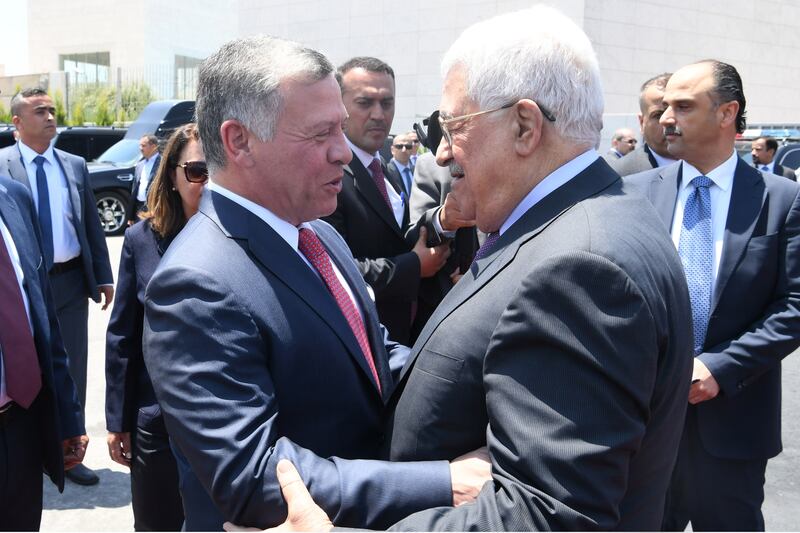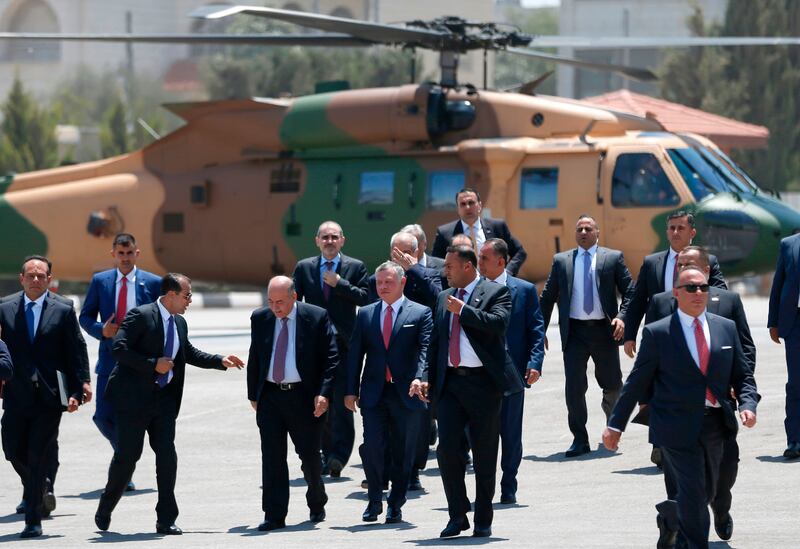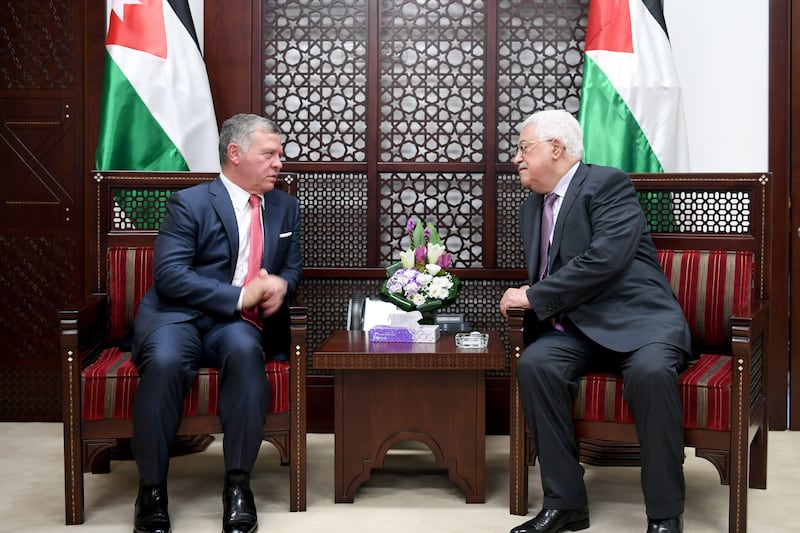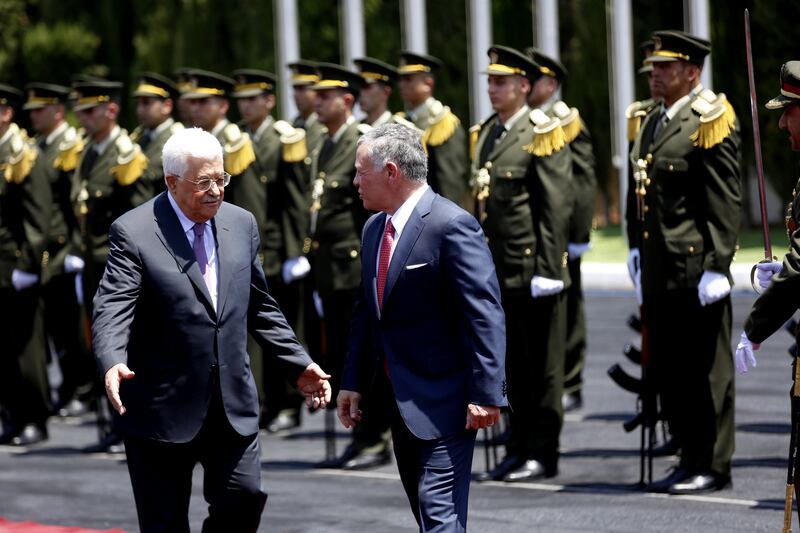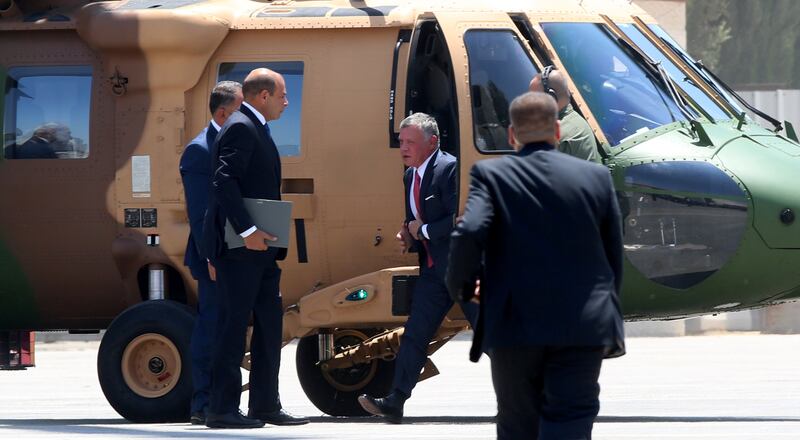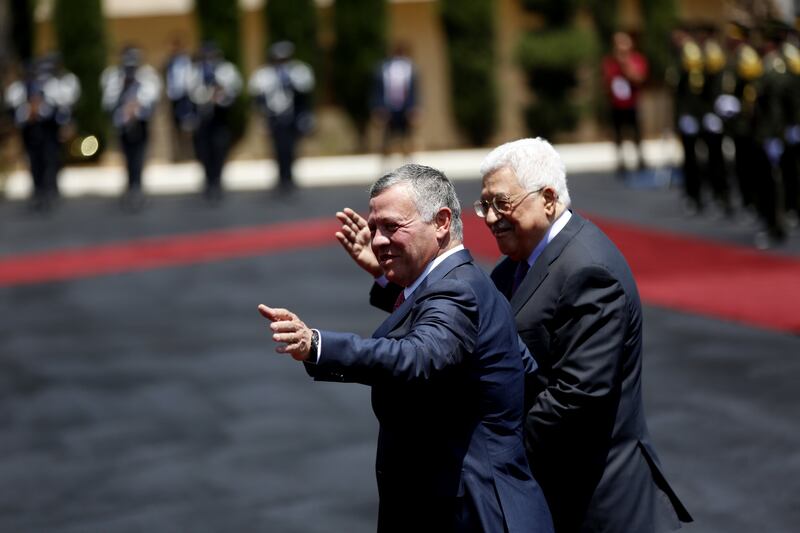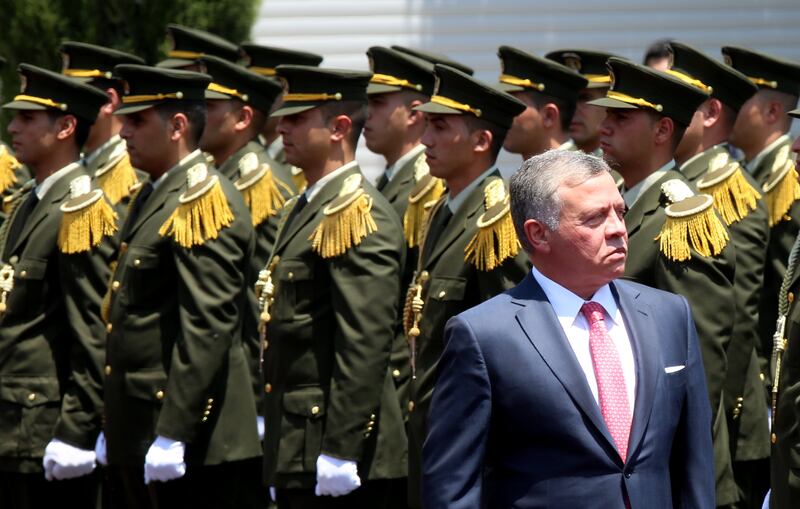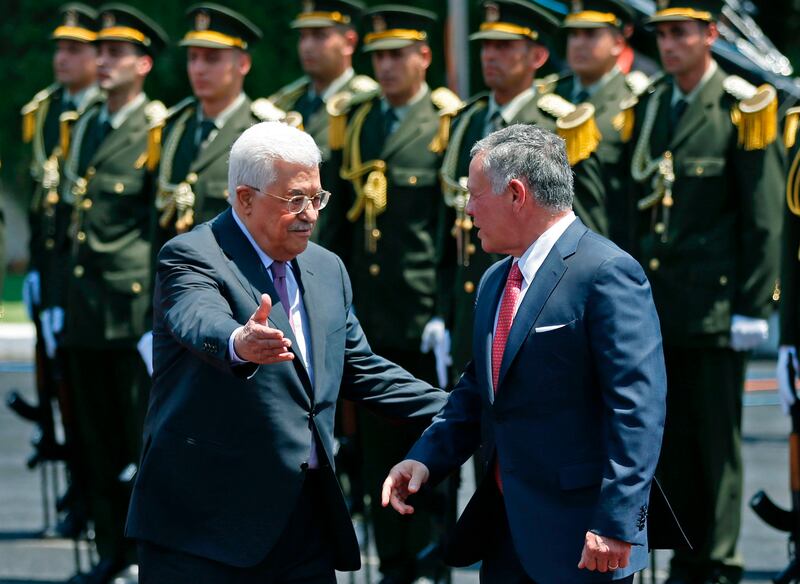Jordan's King Abdullah and Palestinian president Mahmoud Abbas agreed on Monday to create a joint working group to co-ordinate against possible future Israeli "challenges" to Al Aqsa mosque, Palestinian foreign minister Riyadh Al Malki said.
During the king's first visit to Ramallah in five years, the two leaders also discussed the need to move forward stalled Middle East peace efforts, according to Jordan's official Petra news agency.
Speaking after King Abdullah and Mr Abbas held one-on-one talks followed by another round of discussions with their respective foreign ministers and other top advisers, Mr Al Malki indicated that the Palestinian Authority and Jordan are bracing for more trouble with Israel in Jerusalem following last month's crisis over Al Aqsa mosque compound.
"This visit comes at a very important time to do a joint assessment on the problem of Israeli attacks against Al Aqsa in Jerusalem and attempts to change the status quo at Al Aqsa," Mr Al Malki said. Israel denies it is trying to change the status quo at Al Aqsa or any other holy site.
Palestinian and Jordanian officials "evaluated" the recent crisis and "we did preparations for the coming stage that we expect from Israel and from the person of Israeli prime minister Benjamin Netanyahu", he added.
Jordan, which is the custodian of holy sites in Jerusalem, had been in discussions with the United States to try and resolve the crisis sparked by Israel's installation of metal detectors and security cameras at entrances to Al Aqsa mosque compound last month. The measures were implemented following a deadly July 14 attack at the site in which two Israeli police were killed by three Palestinian citizens of Israel. Israel said the measures were needed to prevent further attacks, but the Palestinians viewed them as a step to taking over the mosque, the third holiest site in Islam.
Under diplomatic pressure and faced with Palestinian protests, Israel ended a two week stand-off by withdrawing the detectors and cameras near the site, which is also sacred to Jews as Temple Mount The climbdown by prime Minister Benjamin Netanyahu was seen as a Palestinian victory buttressed by Jordanian support.
At the meetings in Ramallah on Monday, Mr Al Malki said the two sides had "agreed on the creation of a joint crisis cell which will keep following this issue to evaluate the past period and its lessons and evaluate the challenges we might face at Al Aqsa in the future"
Petra, the Jordanian news agency, said talks focused on "the need for preserving the historic and legal status quo in noble Jerusalem and to not hurt it because there will be negative consequences for the entire region". The installation of the metal detectors sparked protests throughout the Muslim world from Khartoum to Kuala Lumpur.
King Abdullah is hoping the visit to Ramallah and show of support for the Palestinians will give him a boost at home, where many Jordanians disagreed with his decision to allow an Israeli embassy guard who fatally shot two Jordanians last month to return to Israel. Israel's foreign ministry said the guard acted in self-defence after being stabbed with a screwdriver by one of the men. But there was widespread revulsion in Jordan when Israeli prime minister Benjamin Netanyahu hugged the guard upon his return and praised his handling of the incident, embarrassing King Abdullah.
Petra said "president Abbas praised the role of Jordan and the king in reopening the mosque and removing the recent crisis and said that Hashemite sponsorship over Islamic and Christian holy sites is very important to protect them".
King Abdullah, meanwhile, praised US president Donald Trump as being "committed to work for peace between Palestinians and Israelis", according to Petra. By contrast, Palestinian officials have noted that Mr Trump has failed to condemn Israeli settlement construction and say his son-in-law and the US coordinator for Israeli-Palestinian peace efforts, Jared Kushner, sides with Israel against them.
Last week, a speech Mr Kushner gave to congressional interns was leaked to the US tech news website Wired. During the speech he adopted Israel's view that the Al Aqsa crisis stemmed from Palestinian incitement and mused that there may be no solution to the Israeli-Palestinian conflict. The speech alarmed Palestinians and prompted PLO executive committee member Hanan Ashrawi to say Mr Kushner had "disqualified himself" from being a US peace envoy.
King Abdullah appeared to take a softer approach to the US on Monday. According to Petra, he "confirmed the importance of working with the US administration to move the peace process and relaunch serious and efficient negotiations based on the two state solution. His Majesty said that what is desired is to intensify efforts to make progress during the coming period".
Ghassan Khatib, a former Palestinian Authority minister and the vice president of Bir Zeit University near Ramallah, said Monday's meetings drew on a sense that Jordan and the Palestinians had complemented each other during the recent crisis over Al Aqsa.
"The feeling among both Palestinians and Jordanians that Israel won't stop here and will continue its attempts to make changes in these holy sites is creating a feeling of urgency and need to co-ordinate on a higher level," he said.
He added that Mr Abbas needs to co-ordinate with Amman on the peace process since Jordan has the best relations with the Trump administration of any Arab country.
